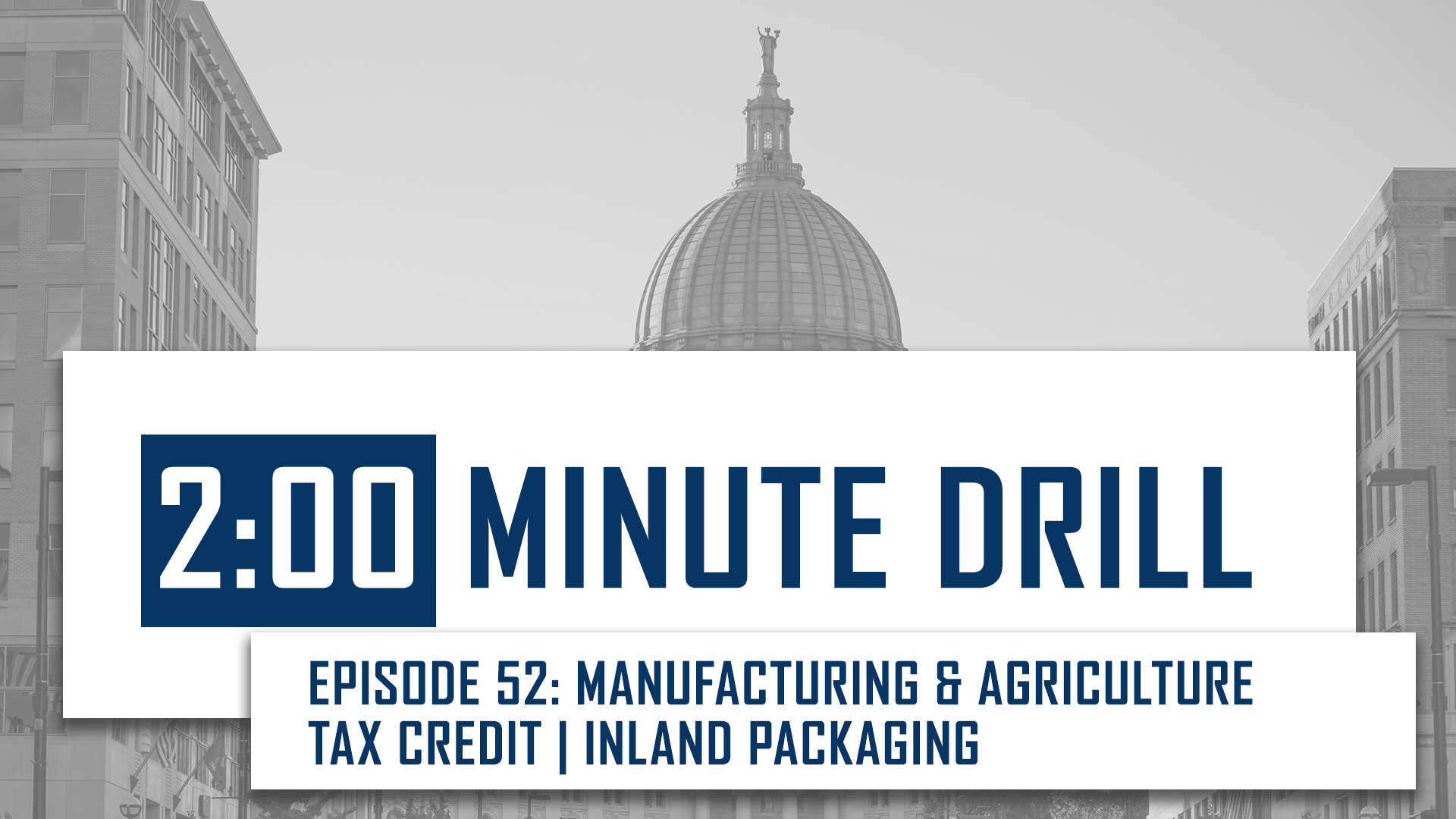By Jason Culotta
WMC Senior Director of Government Relations
This column was published in the 2017 edition of Wisconsin Business Voice.
Among the more serious issues circulating in the Capitol this session is an effort by some Republican legislative leaders to give local assessors permission to raise property taxes on businesses.
Under the guise of fixing a “dark store loophole,” these lawmakers are seeking to tax business property on the value of a lease rather than the actual property, and exclude vacant buildings as comparable property, both efforts to drive the assessment of business property higher than current law allows.
Sensational news stories have run in several communities across the state where local governments have had to pay out refunds to “big box” retail stores. Local elected officials have decried that these commercial property owners aren’t paying their fair share of property tax.
The assessors (about one-fifth of those employed by local governments) and the municipalities they work for contend that the law which has governed commercial property assessment since 1970 should be dramatically changed to empower assessors to levy higher amounts.
State Senate President Roger Roth is authoring a bill to exclude vacant comparable property, while Sen. Duey Stroebel is leading the legislation to tax leases. Assistant Assembly Majority Leader Rob Brooks, a former Ozaukee County Board chairman, is spearheading both bills in the Assembly. These lawmakers have generally been supportive of making Wisconsin more economically competitive, but on this issue have embraced the cause of aggressive assessors seeking to jack up taxes on employers.
Some aggressive assessors started out focusing on large retailers, insisting these stores did not pay enough in property taxes and assessing those properties for anywhere from two to five times the value they previously had been assessed at. They did so unlawfully and have consistently lost the resulting court challenges. Today, those assessors are moving on to restaurants, hotels, and other commercial properties, broadening the application of their new theories of how to extract more tax revenue from business property owners. For example, the Concourse Hotel in Madison saw its assessment triple this year compared to last – and it was just one of several examples in Madison this year.
Advocates for raising taxes on business property have pointed out that Indiana adopted two laws in 2015 allowing for these new means of assessing higher values. Both laws were subsequently amended in 2016 to correct over-reaches in the original language. While one house of the Michigan legislature passed similar legislation in 2015, no further progress has been made on the issue.
It should be noted that both Americans for Tax Reform and the Council on State Taxation have recently come out strongly against this new legislation.
Another complication unique to Wisconsin is the Uniformity Clause of our state constitution. If these changes are made for commercial property as their advocates espouse, they must also apply to residential, manufacturing and agricultural property. What is unclear is how significant those changes will be for using vacant property as comps for all classes of property.
So why are some Wisconsin Republicans determined to raise property taxes on business through a backdoor tax on income? The common theme between the authors and others supportive of the legislation is to please their local elected officials. It’s time for these lawmakers to decide if they stand with taxpayers or the government spenders.
See the full issue of Wisconsin Business Voice.

Episode 52: Wisconsin’s Manufacturing & Agriculture Tax Credit
https://www.youtube.com/watch?v=-enjM36-GAk WMC, in partnership with Inland Packaging in La Crosse, released a new video highlighting how Wisconsin manufacturers have contributed to the state’s economy due




